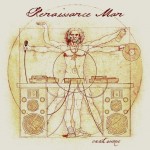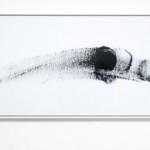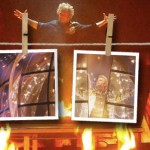
Piotr Demianovich Ouspensky (March 4, 1878–October 2, 1947) was a Russian philosopher who rejected the science and psychology of his time under the strong suspicion that there had to exist a superior system of thought. In his youth, he studied mysticism and esotericism and traveled extensively in search of ancient wisdom, sensing that past ages knew more than his present one. “I felt that there was a dead wall everywhere,” he commented in one of his early biographical notes. “I used to say at that time that professors were killing science in the same was as priests were killing religion.”
When Ouspensky met George Gurdjieff and was introduced to the Fourth Way in 1915, he realized that the barrier towards knowledge lay in oneself; that one couldn’t find the truth without simultaneously laboring to become the truth.Superior knowledge could only come with sufficient preparation to receive superior knowledge. Ouspensky spent the rest of his life transforming knowledge into wisdom; laboring to make the Fourth Way principles his own and to share them with like-minded people. In so doing, he became an agent of truth for his age, carrying the wisdom of the pre-World War era into the middle of the twentieth century.
Ouspensky’s Search
“I became dissatisfied with science,” says Ouspensky in an autobiographical note. Although lacking direction, the young philospher sensed that there was more to life than met one’s eye and that science, philosophy, psychology and religion were missing the point. He was prompted to search for truth. His intuition suggested that the past ages had possessed knowledge of this ‘truth’ that his present age lacked. He therefore read and traveled extensively, in search of the miraculous:
Ouspensky’s novel attracts appreciation but leaves its author as disatissfied as he was before writing it. He knows that, while his mind can theorize about higher dimensions, he himself remains barred from them. He therefore continued his studies and search.
Ouspensky is noteworthy for his sincerity and his ability to avoid self-deception. He doesn’t fall for anything short of the ‘truth’ he is zealously after, and while other literature inspires him, he nevertheless sees its shortcomings.
It is also worthy to note that public acclaim to his novel and lectures fails to satisfy him. At these early stages of his life, Ouspensky could already have garnered a following and established a teaching, save that his conscience prevented him from leading others along paths he himself wasn’t certain of.
Ouspensky on Higher Dimensions
The idea of dimensions fascinates Ouspensky, which, apparently, is an enthusiasm he has inherited from his father. Time and the fourth dimension; that if man penetrated a higher dimension he could perceive his time-body, witness his past, present and future, and live accordingly, seems to Ouspensky an invaluable vision that would alter the entire course of one’s life.
Ouspensky also ventures into theoretical studies of dimensions higher than the fourth, and in particular, of eternal recurrence – a dimension where one’s present life has been previously lived through an infinite amount of times. These are the basis of his novel, “Strange Life of Ivan Osokin.”
Ouspensky Dissatisfied
Despite his intellectual ventures – and despite ‘Tertium Organum’ achieving status of bestseller – Ouspensky still feels barred from the reality of the dimensions he so strongly suspects. Although a bestselling author, he nevertheless remains unsatisfied with acclaim and continues his pursuit of truth, which would become a hallmark of his later years.
Ouspensky would later confess that the strongest drive towards self-knowledge and self-remembering was the dissatisfaction with one’s present state; that nothing could drive more to progress along the path of inner evolution that the repulsion of sleep.
Ouspensky continues his search for a firm foothold of wisdom, expanding his research into more branches of literature and more exotic countries. He formulates the need of direct instruction and seeks to connect with schools of wisdom, which, he believes, might still exist in his day, as tail ends from ancient traditions now lost.
Ouspensky meets Gurdjieff
In the early 1900′s, Ouspensky ventures to the Middle and Far East in search of traces of lost knowledge. He returns to Russia and gives lectures on his search for the miraculous. These presentations attract a significant following of like-minded people. In one of them, he is approached by two attendees and recommended to meet a foreign mystic who is visiting Russia during that time.
In 1915, Ouspensky meets George Gurdjieff and immediately recognizes that Gurdjieff possesses the knowledge he had been searching for abroad. He becomes Gurdjieff’s pupil for ten years, learning from him the principles of the Fourth Way. The teaching occurs on the backdrop of the declining social order in Russia and is somehow complemented by it. The ‘Work’ as Gurdjieff calls is, can only occur under pressure, when nothing can be taken for granted and students are put to the most basic tests of valuing the spiritual over the physical.
The current events force both Gurdjieff and Ouspensky to relocate. Meanwhile, Gurdjieff’s presentation also evolves and takes a different direction, which compels Ouspensky to leave him and continue working on his own. Ouspensky settles in London in 1930 and begins teaching the Fourth Way as well as writing literature about the system he had learned from Gurdjieff.
Ouspensky dies in Lyne Place, England on October 2, 1947.
Ouspensky – Agent of the Fourth Way
Ouspensky recognized that, in meeting the Fourth Way, he was meeting something big. He sensed that it reached far back in time, perhaps as far as the earliest culture. He treated the Fourth Way respectfully and impersonally, as a system that did not belong to man – which was one of its chief strengths.
By the same token, Ouspensky was hesitant to publish his works and attach his name to something much greater than himself. And, indeed, those books presenting his expression of the Fourth Way were published mostly posthumously. Furthermore, in the opening of Ouspensky’s book The Fourth Way, he acknowledges that the system does not belong to him.
Ouspensky’s Legacy
Ouspensky hoped that, if he could cause enough ‘disturbance’ – collect a sufficient number of really sincere and properly ‘prepared’ people – he might catch the attention of ‘someone’ who would come and give help. He wasn’t clear about the nature of this help and probably didn’t know himself what it may mean.
Nevertheless, he sensed an immense responsibility in his role, and the remainder of his life was wholly and completely devoted to fulfilling that responsibility.
But in the end, partly owing to World War II, he had to admit that all his work seemed to have failed to give the results which he had hoped for. Gurdijeff, too, dismantled his Institute, and the two agents of the Fourth Way reached the completion of their lives having fallen short of the external aims they had sought to accomplish. Ouspensky took full responsibility for students. He gathered them together and told them that they were completely free to carry out their search in any way and in any direction that seemed best to them.
Outwardly, this was, in a way, a confession of complete failure, but inwardly, in the end, it gave him supreme victory, and, though he gave back their freedom to all those who had followed him, yet he never in quenched their hope, but indicated to those who might have real faith in him, that this very restoration of freedom was in itself the opening of a new door.








